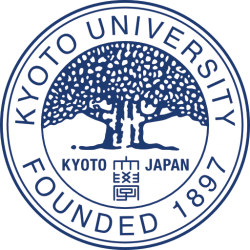Teacher: WIRTZ, Fernando Gustavo
Course Code: JK41003
This course explores the theoretical role of myth in the construction of political subjectivity. In other words, how are political subjects—such as organizations, classes, or parties—constituted through affective and emotional imagery?
We will examine this question through the work of both classical Western thinkers like Georges Sorel and Ernst Cassirer, as well as more contemporary authors such as Ernesto Laclau, Sara Ahmed, and Chiara Bottici. At the same time, we will seek to approach this issue from non-European perspectives, drawing examples from Asia, Latin America, and other global contexts.
Myths arise through translation and transmission. In contrast to the idea that myths originate in a universal archetypal background underlying all cultures, or in some kind of ethnic original past, this course will place emphasis on myth as a phenomenon whose nature is one of constant transformation. While we will take the work of European theorists as a starting point, we will seek to illustrate these theories with examples from East Asia, especially Japan. At the same time, we will read what Japanese intellectuals such as Miki Kiyoshi, Kōsaka Masaaki, and Maruyama Masao wrote about political myths. Although these authors were influenced by European theories of myth, they certainly reappropriated and transformed them within the context of Japan. Since myths are closely linked to the question of national identity, we will analyze the extent to which the constitution of national identity in Japan was constructed through a reciprocal dynamic of myths and counter-myths in relation to the idea of the “West.”
Myths are not merely legends of the past; they are also present-day narratives and symbolic images through which social groups can identify themselves and generate a shared sense of belonging. Consider, for example, the phrase “Make America Great Again.” This is a political myth that connects an idealized past with a fictional horizon, charged with affective resonance for many. What drives such identification? Certainly, every author has their own definition of myth. Authors such as Sorel would say that it is not so much a myth as a “utopia,” that is, a product of the intellect that seeks to delay real change.
Myths are often viewed with suspicion in political contexts due to their seemingly irrational nature. They are believed in, not on the basis of reasoned argument, but through emotional appeal. Yet must myths always be objects of manipulation? Can we speak of “good myths” and “bad myths”? This course invites students to engage critically with such questions and to reflect on the power of myth in shaping political imaginaries.
Course Information
Module: Research and Advanced Studies
CATS Requirements: BA 3rd. year or above
Link to course material on PandA.
Day/Period: Mon/2
Location: Sem. 2
Credits: 2
Course Goals
‐Understand key theoretical approaches to political myth and its role in the formation of political subjectivity.
‐Analyze and compare classical and contemporary theories of myth from different thinkers.
‐Reflect on the affective dimensions of contemporary political discourse and the role of narrative, symbolism, and identification in shaping political agency.
‐Reflect on myths in transcultural terms
Course Schedule and Evaluation
For a detailed course schedule, please visit KULASIS or the PandA platform (the enrollment key is provided in KULASIS and also during the first week of class).
Active Participation – 10%
Short Essay – 30%
Student-led introduction of the text (Referat) – 20%
Final Essay – 40%


